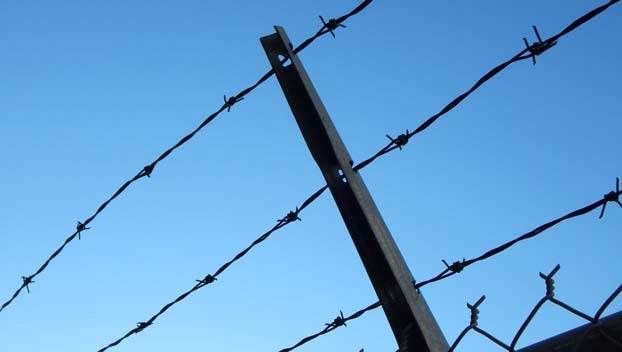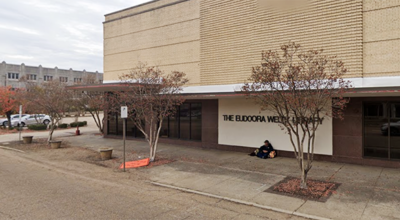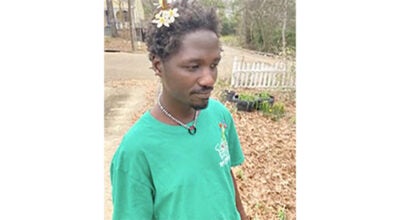Facing slashed budgets, desperate prison officials look to religious volunteers for programs that states refuse to fund, expert says
Published 10:52 am Tuesday, May 25, 2021
By Jerry Mitchell
Mississippi Center for Investigative Reporting
In the wake of states slashing prison spending by billions, desperate corrections officials are throwing a Hail Mary.
“The American prison system is near collapse,” said Michael Hallett, a professor of criminology and criminal justice at the University of North Florida who has studied prisons for more than two decades. “There’s severe overcrowding, widespread mental illness, high levels of post-traumatic stress disorder, almost nonexistent levels of programming, extreme violence, unforgiving sentences, corrosive employee turnover and costly recidivism.”
Facing these gargantuan woes, corrections officials are looking to religious volunteers to provide education, job training and other programs that states refuse to fund, he said. “We are in a total crisis.”
Now in charge of a budget that has been slashed by $66 million since 2014, Mississippi Corrections Commissioner Burl Cain is looking to the same answers he said rescued the Louisiana State Penitentiary at Angola when he was warden there.
That includes his opening of the state’s first prison seminary for women at the Central Mississippi Correctional Facility. The women’s seminary is only the third of its kind, the first two coming in Louisiana and Georgia.
Nationwide, the numbers of prison seminaries are growing, now at 23, Hallett said. There are another 37 hybrid programs that feature religious instruction.
Angola’s seminary graduates became everything from grief counselors to hospice orderlies to literacy coaches. Cain said he is working to do the same in Mississippi.
“If you’re really going to touch their souls, you have to have the preacher there all the time,” he said. “Then when their wife leaves them or they have a death in the family, the minister can sit with them all night long.”
Hallett, who studied the Angola experiment for five years, concluded that “religious programming made the prison more humane and drastically better. At the time the seminary was opened, the prison was struggling with diminishing resources and increasing violence.”
He criticized state leaders for abdicating their responsibilities and expecting volunteers to make up the slack.
Hallett, who calls himself a “peace church Catholic,” doesn’t believe religious programming should be coercive, and he said it can be if it’s the only option.
But there’s no questioning the results, he said. In studying six seminaries with other professors, they found lower disciplinary rates of seminary students and graduates. Religious practice at the prison’s inmate-run churches was also associated with lower inmate misconduct.
He recalled interviewing a seminary graduate who had been a drug lord: “He told me, ‘I’m freer today at Angola than I ever would have been on the streets of Baton Rouge.”
He praised those volunteering their time to improve the lives of prisoners, including Ruth Graham, the daughter of renowned evangelist Billy Graham.
She spoke last week by Zoom to the 29 women at Mississippi’s new seminary as well as 46 men attending Parchman’s seminary, which opened in 2009.
“We want to say Jesus works and put on this happy face and say our lives are together,” she said in an interview with MCIR. “We put on this mask, and yet underneath there are all these issues. We say we don’t have these problems, but we really do.”
The four-year accredited seminaries are privately funded and run by Leavell College of New Orleans Baptist Theological Seminary. To qualify, prisoners must face at least 10 more years behind bars, stay free of rule violations and have a high school diploma or the equivalent.
Ruth Graham said her involvement with prison ministries began by accident. In a 2009 trip to the Louisiana State Penitentiary at Angola, she visited prisoners on death row.
“I felt terribly inadequate,” she recalled. “What did I as a White suburban wife have to say?”
When she reached the first cell, she met an inmate named Michael, who shook her hand and asked if he could sing her a song.
She said yes.
He sang the hymn, “It Is Well With My Soul.” She saw his peace, the peace that had sometimes eluded her, and tears welled in her eyes.
Afterward, he asked if he could give her something.
She said yes.
He handed her a cross that he had woven from the thread of multiple bedsheets.
When news spread of her visit to Angola, she heard from a missionary whose granddaughter had been murdered by Michael. The missionary had forgiven Michael and wanted to know if he was going to be in heaven, too.
In that moment, “I realized I didn’t understand what forgiveness was,” Graham said. “Forgiveness is sacred. Forgiveness is holy. It is when we enter into the very nature of God.”
When she called Angola to check on Michael, she found out that he was scheduled to be executed soon.
On the day he died of lethal injection, she prayed again for him and felt reassured that she would see Michael again one day.
His woven cross still hangs on her wall, a reminder of forgiveness.
“I have had to learn forgiveness and had to forgive myself,” she said. “After four failed marriages, I wondered what was wrong with me. Why did I keep making the same mistake? Was I even saved?”
One day when she was beating herself up, she realized that as a little girl, she had felt abandoned. But she said she had never blamed her father because he “was my hero.” She realizes now that she was “searching for security all my life, something to fill that spot.”
What’s happening inside these prisons changes lives, she said. “It’s not about reformation; it’s about transformation.”
Jerry Mitchell is an investigative reporter for the Mississippi Center for Investigative Reporting, a nonprofit news organization that is exposing wrongdoing, educating and empowering Mississippians, and raising up the next generation of investigative reporters. Sign up for MCIR’s newsletters here.
Email Jerry.Mitchell@MississippiCIR.org. You can follow him on Facebook or Twitter.






